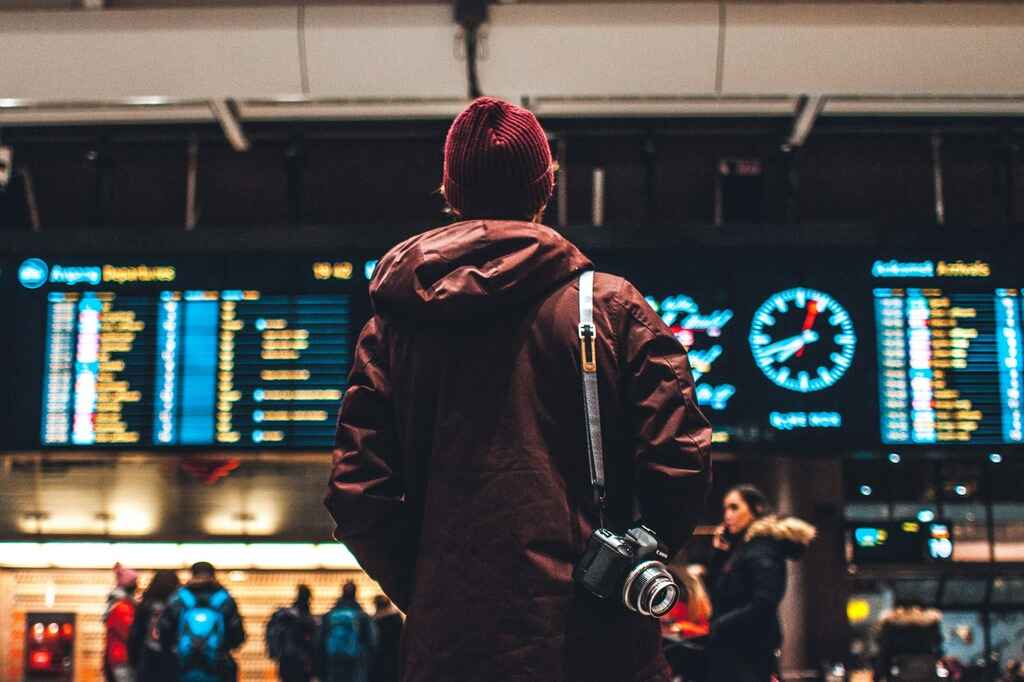Is Albania safe?
Some travellers might ask if it is safe to travel in Albania. I would like to answer this question in my travel blog today. The small Balkan state on the Mediterranean has recently become an increasingly attractive holiday destination. The impressive natural beauty, majestic mountains and picturesque coastline, coupled with a great history, are winning the hearts of hikers and cultural travellers. As beautiful as the country appears at first glance, the question arises: Is it safe to travel to Albania? Time and again, there are reports or rumours of dangers and uncertainties that could unsettle potential travellers. This article will examine whether Albania is a safe country and whether it can be travelled without hesitation.

By Dirk Pohlers, adventure traveller from Germany. I visit every place I write about & share real tips, photos, & advice from my trips.
Table Of Contents
Is Albania dangerous for travellers?
Security in Albania is often presented in a slightly distorted light. For many, the country is considered unsafe because there have been many uncertainties in the recent past. After the fall of the communist regime in the 1990s, Albania admittedly experienced a period of instability. But that is now in the past. Today, Albania is a safe country with an expanding economy and has established itself as a peaceful and attractive tourist destination.

Albania’s crime statistics show comparatively low crime rates, especially in popular tourist areas. Safety is very good in cities such as Tirana, Berat or Gjirokaster, as well as in other tourist spots along the coast and in mountainous regions. Albanians are known for their hospitality, and travellers consistently report great experiences and the locals’ hospitality.
Is Tirana safe?
Tirana is considered as relatively safe for tourists. The city’s crime rate is lower than in many Western capitals, but like any major city, it’s wise to remain vigilant. Petty crime such as pickpocketing can occur, especially in crowded areas like markets or public transport. Keep your belongings secure and be more cautious in busy areas.
Possible dangers in Albania? – A rational view
As in any other tourist destination, there are some risks in Albania that travellers should be aware of. However, most of them are manageable and easy to avoid. As in other European capitals, petty crime can occur in overcrowded tourist areas, but is a rare phenomenon in my experience. Caution is advised in busy areas or large crowds. Keep your valuables safe and be vigilant, especially around train stations, markets, and other busy places.
In rural areas, especially in the mountains, it is important to be aware of current weather conditions and possible natural hazards such as landslides and flooding. Depending on the season, hiking trails can also be challenging: it is advisable to have the right equipment with you. Another aspect is the safety of travellers. Traffic in Albania differs (despite official traffic rules) from that in Central Europe: driving style and roads pose a particular challenge for those who are used to road traffic in Central Europe. Caution and cautious driving are advised here.
Tips for safe travel in Albania
Good preparation will help to ensure your safety during your trip to and stay in Albania. It is advisable to minimize potential risks and follow basic rules of conduct in the holiday location, e.g. do not carry unnecessarily large amounts of money and respect local customs.
- Travellers should be aware of health precautions, even if no special vaccinations are required. A first-aid kit in your luggage is a good idea, as medical care in rural areas is not always up to date. You should also note emergency numbers and the contact details of the nearest embassy or consulate.
- Another important note on how to behave during the trip: Since the roads in Albania can be very bumpy, an off-road vehicle is ideal, especially for remote mountain regions. Alternatively, you can also use officially registered taxis or rental cars from well-known companies.
- Albania is a safe country and a good holiday destination. If you travel carefully and follow the safety instructions, you have nothing to fear. The country definitely offers an impressive variety of landscapes, cultural experiences and friendly people that will surely remain in your memory.
Travelling to Albania as a solo female traveller
Whether it is safe for women to travel to Albania as a tourist has rightly received a lot of attention. Many women feel unsafe travelling alone or with a female friend in foreign countries. In essence, concerns about Albania are unfounded. It is a conservative but open country that respects women.
Female travellers overwhelmingly report positive experiences and that they feel safe in this part of the world. Of course, the usual precautions apply here as in any country. In the big cities and tourist centres, the sense of security is generally high and women can move around freely even in the evenings without much concern.
However, it’s always wise to take standard precautions:
- Dress modestly in religious places: While Albania is relatively liberal compared to some neighbouring countries, dressing modestly can help to avoid unwanted attention, especially in more rural or traditional areas. When visiting churches or other religious places, wear clothing that covers your knees and shoulders.
- Avoid walking alone late at night: Stick to well-lit and populated areas if you’re going out in the evening. Check maps and transportation and know where you’re going and how to get home.
- Be cautious with personal information: As with any destination, be cautious about sharing personal details (e.g. where you’re staying) with strangers.
Emergency numbers in Albania
In case of an emergency in Albania, these are the contact numbers to call:
- Police: 129 or 112
- Ambulance: 127
- Fire Department: 128




